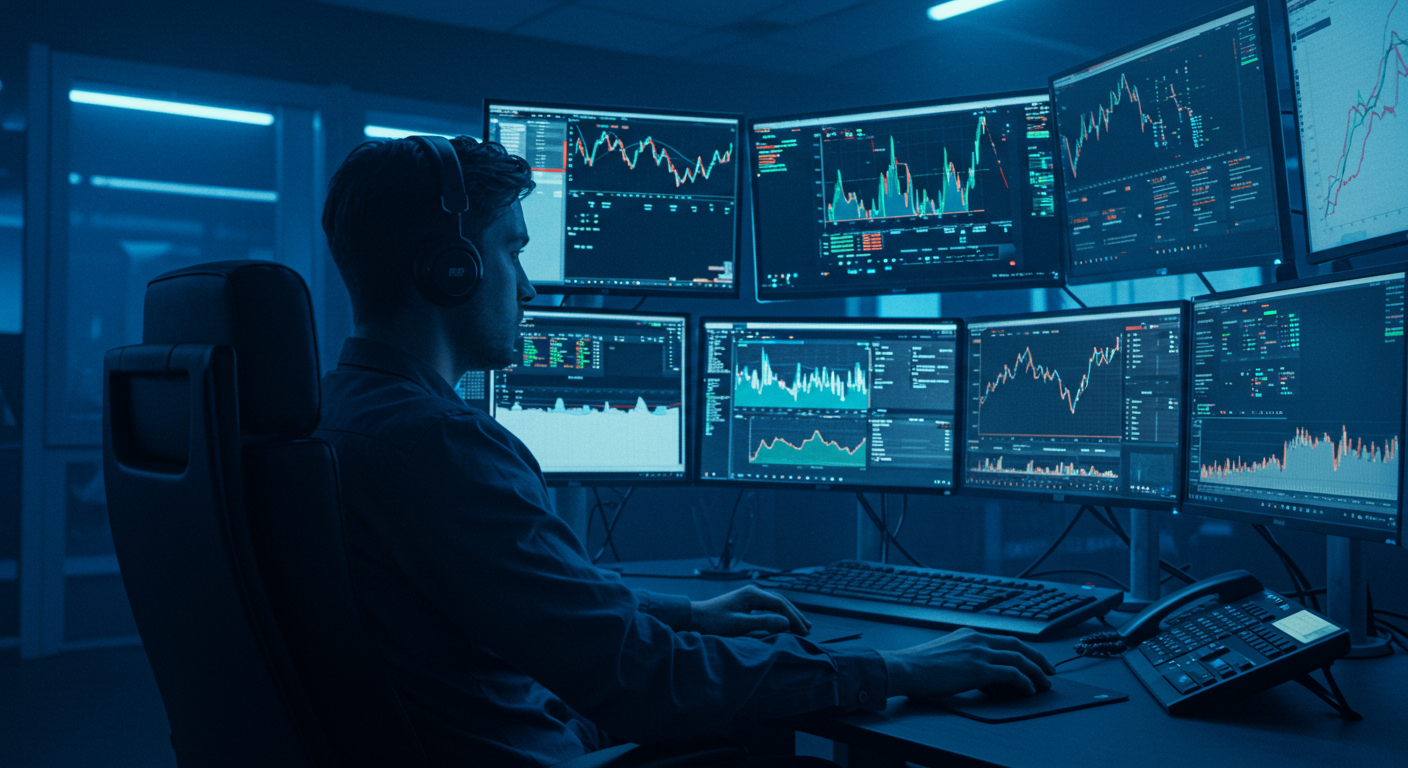That Thumbs Up Just Wasn't Enough
So, I was scrolling through r/Bitcoin the other day and saw this post that totally resonated with me. A guy was talking about how he'd 20x'd his Bitcoin investment since 2017, finally told his parents, and… they gave him a thumbs-up emoji and a warning about the bubble popping. Sound familiar? It's one of those classic crypto stories – you grind, you invest, you see massive gains, and then your family just… doesn't quite grasp the magnitude of it all. It's not about bragging rights, really. It's about the validation that you're seeing something others aren't, taking a calculated risk, and having it pay off. When your family, the people closest to you, don’t understand, it can feel a bit isolating. Especially when they’ve literally entrusted you with their money... and you doubled it!

I've been in crypto for a while now, and I've seen this dynamic play out time and time again. The skepticism, the doubt, the "it's just a fad" comments – they're practically part of the initiation process. You have to develop a thick skin and a strong conviction in your own research and understanding of the technology. The Redditor’s story highlights a key challenge: bridging the gap between those who understand the potential of Bitcoin and those who are still stuck in traditional financial thinking. And while achieving big gains is great, it seems sometimes, that it is still hard to get through to family members and friends.
The Psychology of 'I Told You So' (or Didn't)
What struck me most about the Reddit post was the underlying psychology. The parents, even after seeing their son's success (and even benefiting from it themselves on a small scale), defaulted to a risk-averse position. “It’s risky. The bubble will pop.” It's almost as if they want to be right about Bitcoin being a bad investment, regardless of the evidence to the contrary. Why is that?
I think a lot of it comes down to fear of the unknown. Bitcoin and cryptocurrency, in general, represent a paradigm shift in how we think about money and finance. It's decentralized, it's transparent (to a degree), and it's not controlled by governments or central banks. That's a scary proposition for people who have grown up in a world where those institutions are the bedrock of the financial system. Also, the fact that it is so new and tech-related might prevent older generations to believe in it. Plus, a lot of news outlets and even some influencers keep repeating that Bitcoin is risky, and the bubble is going to pop. That makes people have a hard time believing in it.
Furthermore, there's a certain level of cognitive dissonance at play. If they were to fully acknowledge the potential of Bitcoin, they would have to confront the possibility that they've been wrong about it all along. That's a difficult thing for anyone to admit, especially to their own children. So, instead, they double down on their skepticism, clinging to the familiar narrative of risk and volatility. This isn't necessarily malicious; it's just human nature. However, it can still be frustrating for those of us who are actively participating in the crypto space and seeing the real-world benefits.
What This Means for Your Own Crypto Journey
So, what does all this mean for you, the international crypto trader navigating this brave new world? Well, for starters, don't expect everyone to understand your investment choices. Even if you're consistently making profitable trades, even if you're outperforming traditional markets, you're still going to encounter skepticism and resistance.
That's okay. In fact, it can be a good thing. It forces you to double-check your own research, to be more diligent in your risk management, and to have a clear understanding of your investment thesis. If you can confidently defend your position against criticism, you're likely on the right track. On top of that, it can be even harder if you are an international crypto trader. Each country has its own regulations and laws on cryptocurrencies. If you are in a country where it is illegal, it is going to be harder for your family members to believe in it.
Secondly, don't let the negativity get you down. It's easy to get discouraged when the people closest to you aren't supportive. But remember why you got into crypto in the first place. Was it for the potential financial gains? Was it for the technological innovation? Was it for the sense of community? Hold onto those reasons and let them fuel your passion. Because if you let others change the way you think about crypto, it can really put you down and lose focus. You can instead take it as an extra motivation to keep learning and be successful in the space, so that your family one day believes in you.
The Stuff Nobody Talks About: Managing Risk and Expectations
Now, let's talk about the elephant in the room: risk. Yes, Bitcoin and other cryptocurrencies are inherently risky investments. Volatility is a feature, not a bug. Prices can swing wildly in a short period, and you can lose money just as easily as you can make it. And let's be honest, a lot of crypto projects are straight-up scams or are built on unsustainable hype. If you don't manage risk properly, it can have a lot of negative consequences on your life.
That's why it's crucial to approach crypto trading with a clear understanding of your risk tolerance and a well-defined strategy. Don't invest more than you can afford to lose. Diversify your portfolio across different assets. Use stop-loss orders to limit your downside risk. And, most importantly, do your own research. Don't blindly follow the advice of influencers or hype trains. Understand the technology, the market dynamics, and the potential risks involved before you put your money on the line. Managing risk is one of the most important things to do when investing, and it is not talked about enough.
Beyond financial risk, there's also the risk of social and emotional fallout. As the Redditor's story illustrates, investing in crypto can strain relationships with family and friends. Be prepared for that. Set realistic expectations. Don't try to convince people who are fundamentally opposed to the idea of crypto. Focus on educating those who are genuinely curious and open-minded. And remember, it's okay if some people just don't get it. You can't force them to see the world the way you do. Be aware that the more you talk about crypto with some people, the more they will think you are crazy. If that is the case, it might be best to stop talking about it with them. It is important to protect your mental health.
If You're Trading from Outside the US: Navigating Global Regulations
For those of you trading from outside the United States, there's an added layer of complexity to consider: international regulations. Crypto regulations vary widely from country to country, and they're constantly evolving. In some countries, Bitcoin is legal tender and widely accepted. In others, it's heavily restricted or even outright banned. The rules regarding exchanges, taxation, and ICOs vary between countries. So, it is very important to do research on the crypto regulations and laws of your country.
Before you start trading, make sure you understand the legal and regulatory landscape in your jurisdiction. Are there any restrictions on buying, selling, or holding cryptocurrencies? What are the tax implications of your crypto gains? Are there any reporting requirements you need to be aware of? Failing to comply with local regulations can result in fines, penalties, or even criminal charges. It's always better to be safe than sorry.

Also, be mindful of cross-border transactions. If you're sending or receiving crypto from overseas, you may be subject to additional scrutiny from regulators. Be prepared to provide documentation to verify the source of funds and the purpose of the transaction. Using a reputable exchange like KuCoin can help ensure compliance with international regulations. Finally, keep an eye on global trends in crypto regulation. What's happening in the US, Europe, and Asia can have a ripple effect on markets around the world. Stay informed and be prepared to adapt your strategy as needed. Some countries might change laws overnight, so always make sure to be up to date on the latest news regarding crypto and regulations.
Actually Doing This Stuff: A Practical Guide
Okay, so how do you actually put all this into practice? Let's break it down into a few actionable steps. This is not financial advice. It is just a guide on how to start investing in Bitcoin.
First, choose a reputable exchange. There are dozens of crypto exchanges out there, but not all of them are created equal. Look for an exchange that has a strong track record of security, a wide range of trading pairs, and a user-friendly interface. Changelly is a solid option for beginners. KuCoin is great for more advanced traders. Make sure to do your research, though. Don't just pick any exchange because someone told you to. Once you have selected your exchange, it is time to create an account. Make sure to provide all the necessary information, and to secure your account with a strong password and two-factor authentication. That way, your account is secure from hackers.
Second, fund your account. Most exchanges accept a variety of payment methods, including bank transfers, credit cards, and other cryptocurrencies. Choose the method that works best for you and follow the instructions to deposit funds into your account. Now you are ready to buy Bitcoin. You can buy it directly with fiat currency, or you can trade other cryptocurrencies for Bitcoin. Once you have bought Bitcoin, you can store it on the exchange, or you can transfer it to a hardware wallet for added security. Make sure to research the different types of wallets, and to select the one that best suits your needs. There are many different ways you can use your Bitcoin to make a profit. For example, you can use it to trade other cryptocurrencies, or you can use it to earn interest on a crypto lending platform. Make sure to always do your own research before investing in anything.
My Take on All This: Long-Term Vision and Personal Conviction
So, what's my personal take on all this? I think Bitcoin is here to stay. It's not a get-rich-quick scheme, and it's not without its risks, but I believe it represents a fundamental shift in how we think about money and finance. It is more than just an investment, it is a movement. It is about taking control of your finances, and about being part of a community that is working towards a more decentralized and equitable future.
That doesn't mean you should blindly throw all your money into Bitcoin. It means you should approach it with a long-term vision, a clear understanding of the risks involved, and a personal conviction in the underlying technology. Don't let the skepticism of others discourage you. Do your own research, make your own decisions, and stick to your guns. If you truly believe in Bitcoin, that conviction will carry you through the ups and downs of the market. At the end of the day, this is what it is all about. You need to believe in what you are investing in. And if that brings you success, that will also bring you confidence in yourself, so that the next time a family member doubts you, you won't even care.